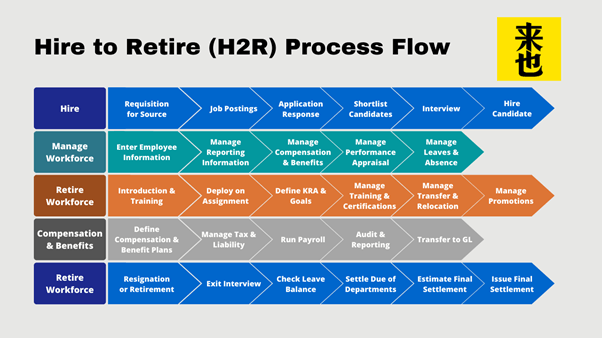4 Automation Trends Shaping The Future — Key Takeaways From The Laiye Annual Summit

Earlier this month, we held one of our most significant annual events, the Laiye Annual Summit, where we discussed the future of automation and its impact across industries. We were honored to have Pascal Bornet, the renowned global expert and pioneer in AI-powered automation and Intelligent Automation (IA), join us. He shared fascinating insights and demonstrated — using Anna, an intelligent robot he created — how IA is changing the game for enterprises and individuals alike.
In this article, we identify four automation trends shaping the future that emerged from our Annual Summit. Missed the event? Watch it on-demand here.

1. Hybrid workplaces will be the future default
The global pandemic has changed and redefined what we deem “normal”, including how employees view “work” and productivity. Evolving business environments and workplace dynamics require greater flexibility for companies and employees to adapt to new norms.
Additionally, as our International CEO Ronen Lamdan highlighted in his opening speech, there is increasing power shifting to the employee. Employees are pushing back against tedious, repetitive tasks and demanding more flexibility and autonomy. To navigate this new dynamic, leaders must change their mindsets to retain employees and unlock their true potential.
2. Business expectations are evolving faster
Shifting global trends and employee demands force businesses to seek better solutions to meet their productivity and efficiency goals.
Legacy RPA solutions failed to deliver on their promises to transform organizations as they are rules-based and deterministic and lack the agility and flexibility to address the rapidly changing market conditions. Their inability to create fully autonomous end-to-end processes meant that business productivity and efficiency could not be optimized.
So, what do enterprises want then?
They are looking for an automation solution that is not only governed by rules and allows for control around how processes get executed but also offers the agility and flexibility for communication and collaboration between humans and machines.
The solution that addresses these needs is Intelligent Automation. This advanced technology combines the power and components of artificial intelligence, machine learning, document processing, natural language processing and process mining, with RPA at its heart. Companies can bring their automation capabilities to new heights with an integrated and intelligent platform comprising these technologies.
3. Consumers are rapidly moving online
In 2021, consumers spent US$870.8 billion online with U.S. merchants, up 14.2% from US$762.68 billion in 2020. This massive shift in shopping habits calls for brands to pivot their strategies to capture these e-commerce growth opportunities.
One way brands adapt to this change is by integrating smart and interactive chatbots as part of their marketing strategies. Laiye has helped Nike transform its customers’ shopping experience by introducing an AI-powered chatbot that also works as a recommendation engine. This automation strategy delivered 50% productivity gains for the global sports retailer and resolved most of their enquiries without manual intervention, even during peak holiday periods.
4. More industries are grasping the opportunities of Intelligent Automation
Industry experts are predicting 2022 to be the year Intelligent Automation will hit exponential growth. This is mainly due to the limitations of first-gen RPA technology, which cannot handle tasks that require human input. With rapid digitalization accelerated by the pandemic, companies are looking for smarter automation solutions.
According to our keynote speaker, Pascal Bornet, Intelligent Automation improves business efficiency by 20% to 60% across all functions and industries by automating or eliminating 60% of repetitive and transactional tasks. This leads to more value-added work being achieved, such as strategy building and creative tasks.
On the healthcare front, automation has the potential to save millions of lives every year through supporting research, clinical trials, disease diagnosis, and patient support.
For the retail sector, with more consumers going online and increasing expectations for faster, more seamless shopping experiences, intelligent automation fills the gap by automating manual tasks with speed and accuracy.
Become a future-ready business
According to Zinnov, the intelligent automation field is estimated to have a total addressable market of more than US$300 billion. Enterprises have currently only scratched the surface of this opportunity, and early adopters stand to reap massive benefits and stay ahead of the curve.
Like to know how Laiye’s all-in-one Intelligent Automation platform can transform your organization? Contact our friendly team today.

